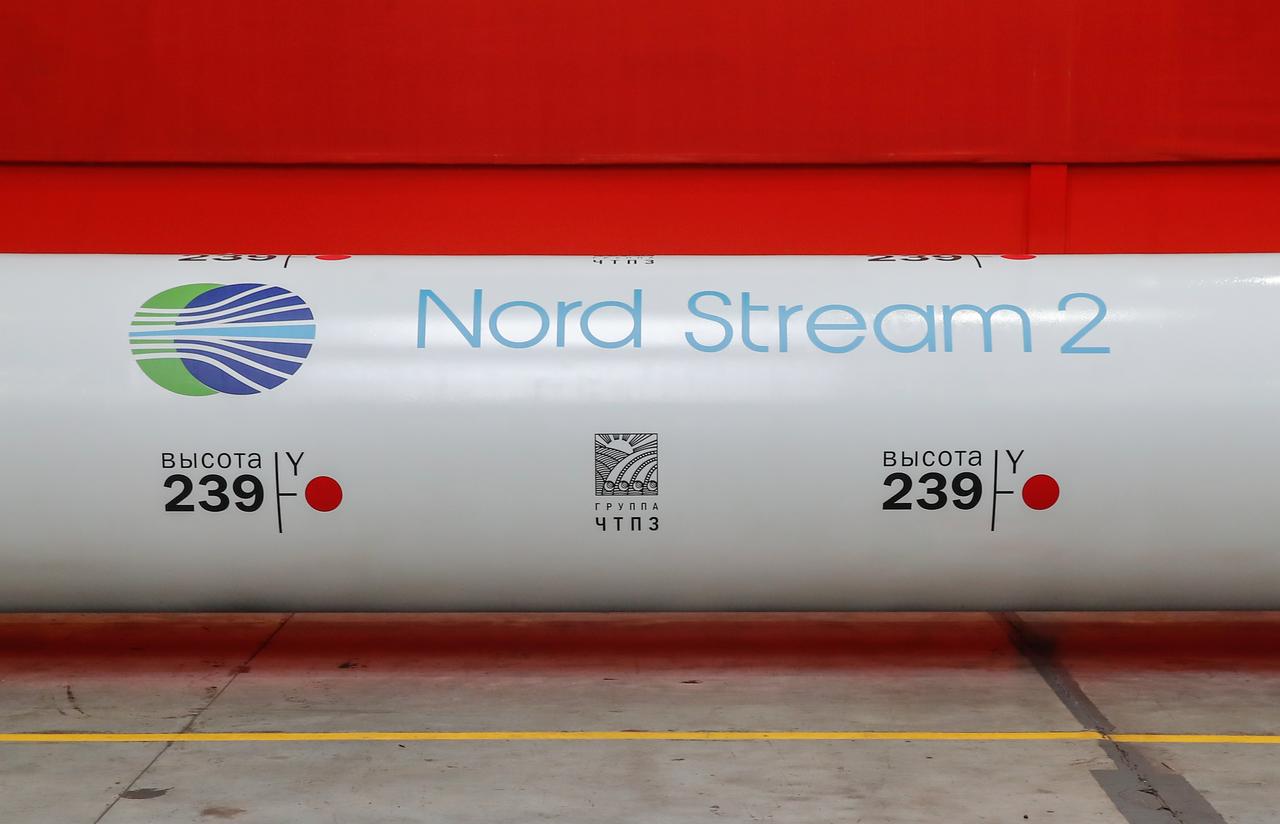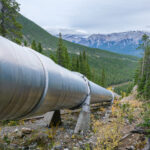Bloomberg
As Angela Merkel weighs up the arguments for scrapping a Russian pipeline project, a cornerstone of the German chancellor’s carefully crafted energy strategy is at stake.
Merkel is coming under increasing pressure to ditch the Nord Stream 2 pipeline after the poisoning of Russian opposition politician Alexey Navalny. Members of her own party have questioned the project and Polish Prime Minister Mateusz Morawiecki said the decision should be a “no brainer.”
But cancellation would mean unwinding years of government strategy to turn Germany into a lucrative gas hub as it boosts supplies of the fossil fuel during the green energy shift. It’ll also unravel the plans of corporate giants like BASF SE, for which the pipeline is crucial.
Germany wants to boost gas imports and distribution this decade, securing a backstop fuel in move away from the dirtiest fossil fuels, its 2020-2030 strategy plan shows. Nord Stream 2 is central to that. The country also stands to make significant income from spreading the fuel around its grids and across its nine borders.

Rewritten Strategy
If Nord Stream 2 collapses “Germany’s gas strategy would have to be rewritten,” said Timm Kehler, who heads the Zukunft Erdgas natural gas lobby in Berlin. “Writedowns on the projects investments would follow and a jump in gas prices in a scramble to find alternative imports.”
Critics of the German plan — including the EU Commission — say that the country doesn’t need so much gas. And the move to more renewables accelerated by the pandemic makes all calculations about future demand difficult. Plunging prices in the global gas markets have made the case against the project even more compelling.
[contextly_sidebar id=”JKJCCOrsarb1JkddO0Ek3UZWKMn6wkiq”]
For years, the biggest glut the world has ever seen has sent fuel to the continent through other pipelines and on tankers from as far away as the U.S. and Qatar. European benchmark prices have more than halved since the peak in 2018.
At the same time, there is growing environmental opposition to building new gas infrastructure, especially when Europe is aiming to be climate neutral by 2050. That itself raises questions over whether the project would have been approved if it were pitched more recently.
But weighing on any decision in Berlin now is also the issue of sunk costs in a nearly finished project with a total investment of 9.5 billion euros ($11.2 billion). The thorny problem of compensation would also need to be addressed.
Industry is now counting on the final 6% of pipe-laying being completed this year, having invested billions that they now stand to lose.
Nord Stream 2 is wholly owned by Gazprom PJSC, and five European companies invested close to half of the money so far committed to the project. Joining Royal Dutch Shell Plc and BASF’s oil-and-gas arm Wintershall, the group includes Engie SA, OMV AG of Austria, and Uniper SE.
“European production volumes are declining and the pipeline and LNG infrastructure are urgently needed to ensure a secure, flexible and cost-effective supply of natural gas to Europe in the future,” Uniper said.
For BASF, which uses gas as a main source of fuel for producing steam and power and whose Wintershall unit makes profit on gas sales, Gazprom was key to replace declining North Sea production. Sanctions mean Iran, the world’s largest producer, is off limits, and Qatar is too distant to consider cost-effective pipelines.
Wintershall provided a 730 million-euro loan to the project, according to a company spokesman.
“Germany will become a net importer of energy in the coming years, which threatens to cause a price explosion that can only be prevented by genuine competition,” said Christian Kullmann, chief executive of German chemical maker Evonik Industries AG and president of German Chemical Association VCI.
Many analysts see gas as the best flexible alternative to renewable energy and with the green switch well under way it’s needed to provide a reliable back-up to intermittent wind and solar. Imported gas also needs to fill the gap in power generation left by the exit from coal and nuclear power that’s coming this decade.
The government therefore is banking on over-supply of natural gas as a backstop fuel because of energy security concerns, said Sascha Mueller-Kraenner, managing director of the Environmental Action Energy group.
“Absurdly, the government backs investments to bloat Russian gas imports for decades to come rather than cutting dependency on the fuel and emissions,” said Mueller-Kraenner.




